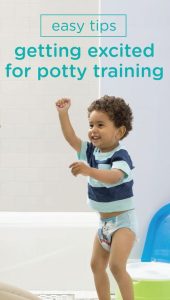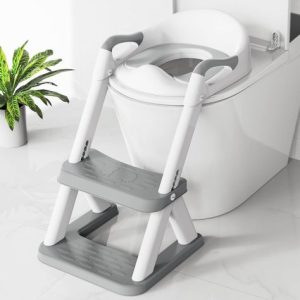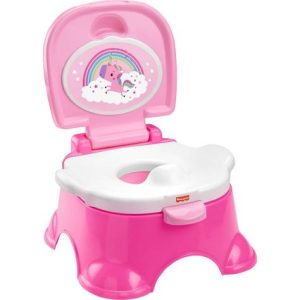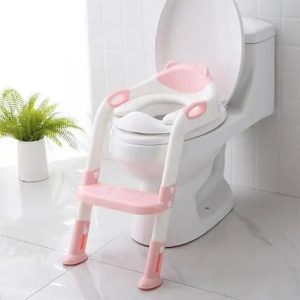Night time potty training can feel like a daunting task for parents. However, with patience, consistency, and the right approach, your child will eventually sleep through the night dryness. This article explores nighttime potty training tips and tricks to help your child on their journey.
Understanding Nighttime Potty Training
Nighttime potty training is a separate process from daytime potty training. Here’s why:
Physical Development:
Bladder control develops gradually. Many children achieve daytime dryness before nighttime dryness.
Hormone Production:
The hormone that helps concentrate urine production is produced less during sleep. This can lead to more frequent urination at night.
Deep Sleep:
Children in deep sleep may not wake up to use the potty.
Remember, nighttime potty training takes time. Be patient and celebrate small successes.

Signs of Nighttime Potty Training Readiness
Is your child showing signs of readiness for nighttime potty training? Here are some indicators:
-
Staying Dry Overnight Occasionally: If your child occasionally wakes up with a dry diaper, it might be a sign their bladder control is improving.
-
Waking Up with a Wet Diaper: This shows they are aware of the feeling of a full bladder and might be ready for nighttime training.
-
Expressing Interest: If your child expresses interest in wearing underwear at night, they might be ready to start nighttime potty training.
These signs are a good starting point, but every child develops at their own pace.

Getting Ready for Nighttime Potty Training
Before you embark on nighttime potty training, here are some steps to take:
-
Talk to Your Child: Explain what to expect in simple terms. Let them know you’ll be there to help them through the process.
-
Pick a Potty: Choose a potty your child feels comfortable using at night. A familiar potty can be reassuring.
-
Limit Fluids Before Bed: Reduce the amount of fluids your child drinks close to bedtime. This can help minimize nighttime accidents.
-
Nighttime Routine: Establish a consistent bedtime routine that includes using the potty before bed.
Preparation is key to a successful nighttime potty training journey.
Nighttime Potty Training Strategies
Here are some strategies to use during nighttime potty training:
-
Offer Potty Breaks: Take your child to the potty once or twice during the night, especially if they tend to wake up frequently.
-
Pull-Ups or Underwear: Decide whether to use pull-ups or underwear at night. Pull-ups might feel more familiar, while underwear can encourage staying dry.
-
Waterproof Mattress Pad: A waterproof mattress pad protects your mattress from accidents.
-
Positive Reinforcement: Praise your child for using the potty at night, even for small successes. Avoid punishment for accidents.
Be consistent with your approach and celebrate your child’s progress.
Addressing Nighttime Accidents
Nighttime accidents are inevitable during potty training. Here’s how to handle them:
-
Stay Calm: Accidents happen. Avoid getting frustrated or scolding your child.
-
Change Wet Clothes: Change your child into dry clothes calmly and efficiently.
-
Simple Clean-Up: Keep the nighttime diaper-changing routine simple to avoid disrupting sleep.
-
Reassurance and Encouragement: Reassure your child that accidents are okay and that they will get there eventually.
Focus on moving forward and avoid dwelling on accidents.
Nighttime potty training takes time and patience. Every child develops at their own pace. By understanding the process, creating a supportive environment, and using positive reinforcement, you can help your child achieve nighttime dryness. Remember to celebrate their successes along the way!
Setting Realistic Expectations
Nighttime potty training can be a long process. Here are some things to keep in mind:
-
Individual Pace: Every child develops bladder control at their own pace. There’s no magic age for nighttime dryness.
-
Ups and Downs: Accidents are common, even after some dry nights. Stay consistent and positive.
-
Focus on Progress: Celebrate small victories, like staying dry for a few nights in a row. These are signs your child is on the right track.
Be patient and encouraging. Nighttime potty training is a journey, not a race.

Regression and Troubleshooting
Sometimes, children regress during potty training. Here’s how to handle it:
-
Identify the Cause: Is your child going through a stressful event? Are they drinking more fluids before bed? Look for underlying causes.
-
Stick to the Routine: Maintain a consistent bedtime routine, including potty breaks. This provides reassurance.
-
Open Communication: Talk to your child and see if they have any concerns about potty training at night.
-
Relaxation Techniques: If your child seems anxious about nighttime potty training, consider relaxation techniques like bedtime stories or calming music.
Regression is temporary. Stay positive and focus on getting back on track.
The Importance of Sleep
Potty training can disrupt sleep for both you and your child. Here are some tips:
-
Maintain Bedtime Routine: A consistent bedtime routine signals to your child that it’s time to wind down and sleep.
-
Limit Nighttime Interactions: Keep nighttime potty breaks and diaper changes low-key to minimize sleep disruption.
-
Address Underlying Issues: If your child has sleep problems unrelated to potty training, consult your doctor.
Getting enough sleep is important for your child’s health and development.

Establishing a Routine:
Consistency is crucial when it comes to night time potty training. Establishing a regular bedtime routine can help signal to your child’s body that it’s time to prepare for sleep and reduce the likelihood of nighttime accidents. Incorporate a pre-bedtime bathroom break into your routine, encouraging your child to empty their bladder before getting into bed.
Encouraging Fluid Intake:
While it may seem counterintuitive, encouraging your child to drink plenty of fluids during the day can actually support night time potty training. Aim to have them consume most of their liquids earlier in the day, gradually tapering off towards the evening to minimize nighttime bathroom trips. However, be sure to avoid caffeinated or sugary drinks, as these can increase the likelihood of bedwetting.
Using Positive Reinforcement:
Praise and encouragement can go a long way in motivating your child during the night time potty training process. Celebrate their successes, no matter how small, and offer rewards such as stickers or special privileges for consistently dry nights. Avoid punishment or shaming in the event of accidents, as this can create anxiety and hinder progress.






